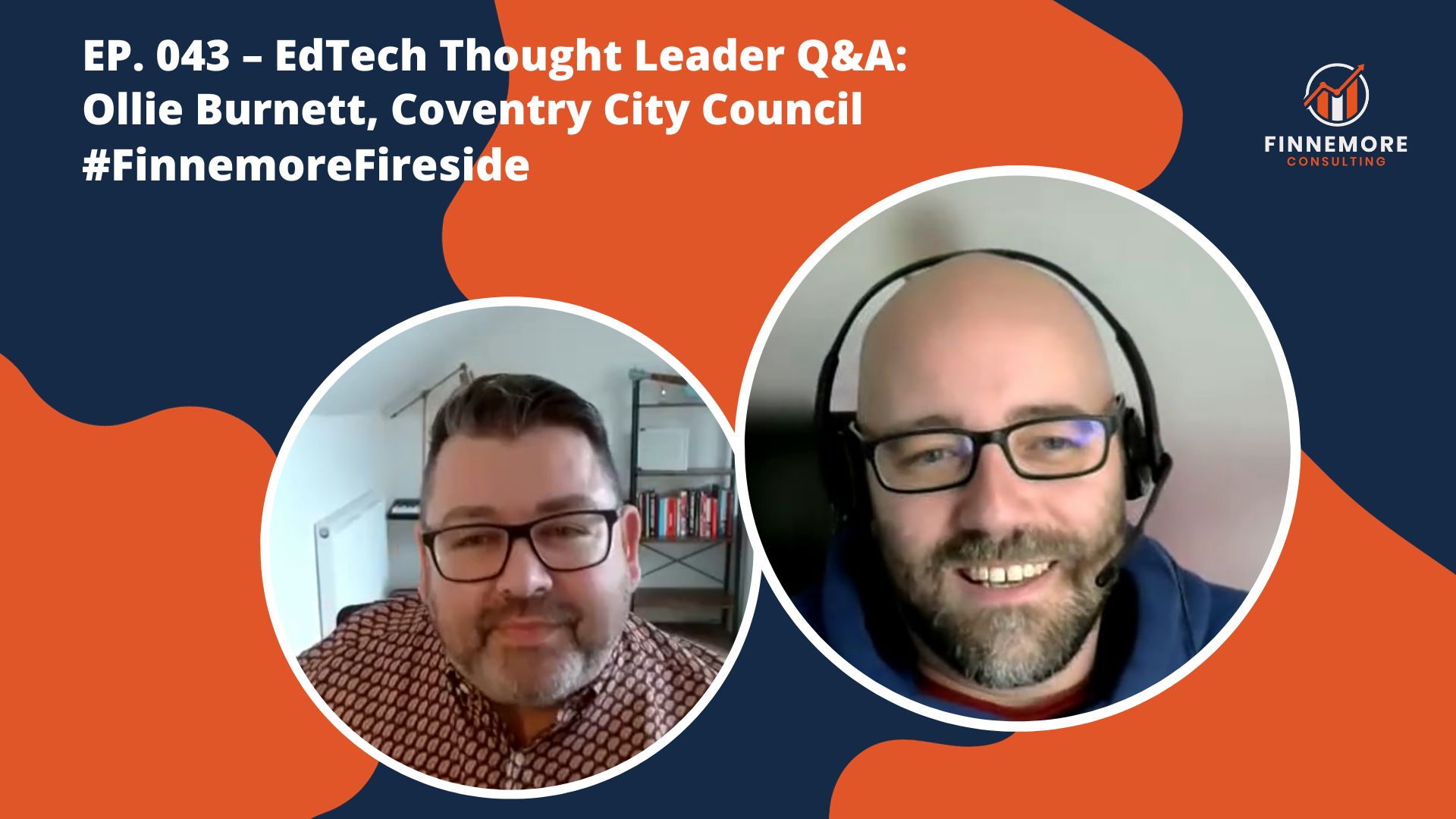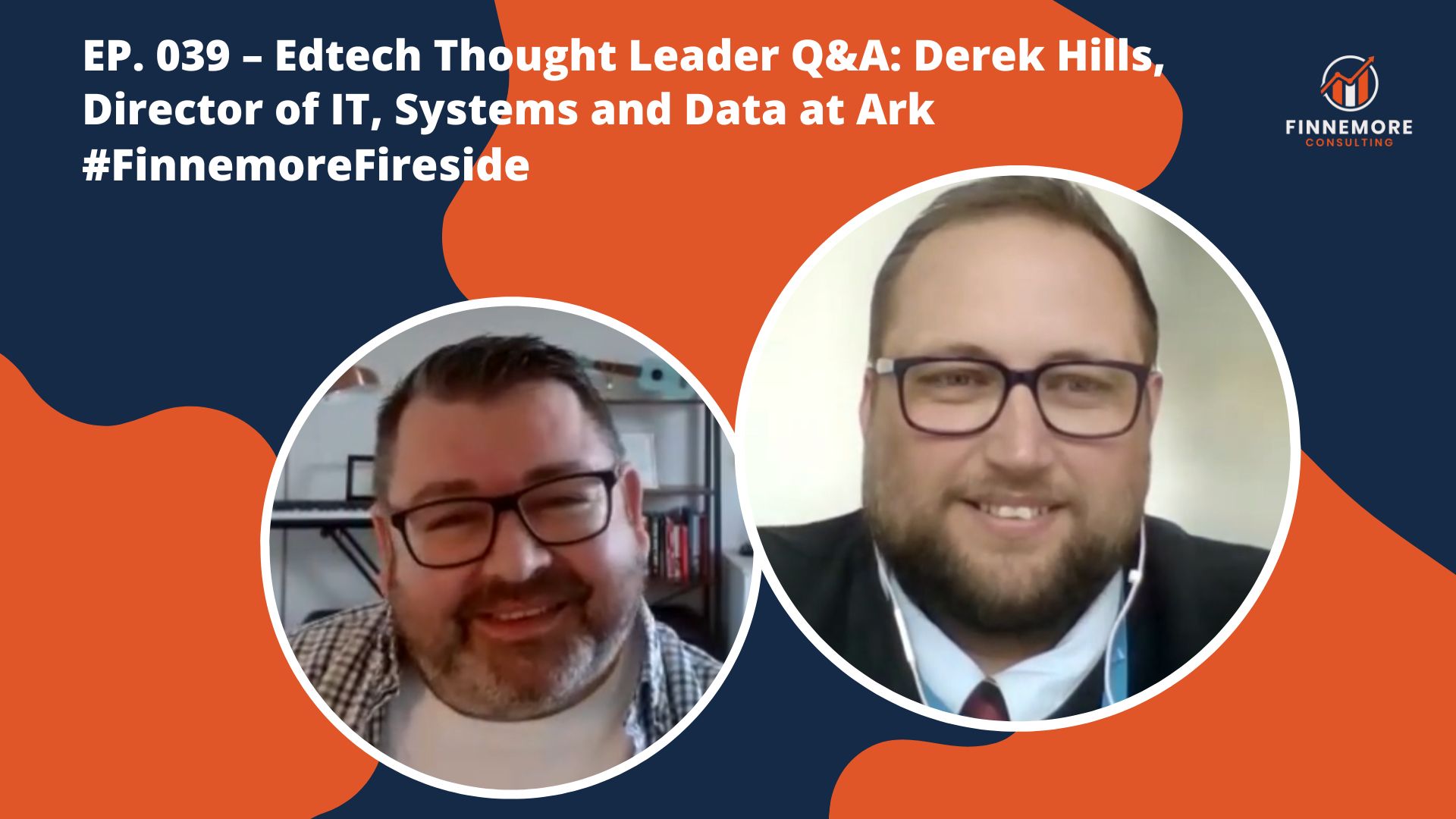We’re delighted to welcome one of our LA Support Team colleagues to our #FinnemoreFireside chats. A huge thank you to Ollie Burnett, Systems Lead at Coventry City Council, who talked to me about their work with schools and plans for the future.
Ollie has been in education since 2003, is passionate about education and aims to improve the experience for students and teachers through his work. It’s a great conversation and, amongst other things, we talk about:
- Having a vision for the future relies on consultation with the SLT, partnering with more suppliers, but ultimately listening and then delivering for their schools and MATs.
- How Support teams should understand the school’s context and goals, offering solutions beyond specific products.
- The importance of Support teams to schools in helping them navigate software and processes.
- How User Group sessions and sharing best practices among schools are promoted to enhance learning.
- The challenges of transitioning to new systems, praising the support provided by suppliers. Ollie highlights the need for training and consultancy services due to the shift to cloud-based systems.
- Support teams are becoming more consultancy-based in the future and collaborating closely with multi-academy trusts (MATs) to meet school needs.
Ollie also chats about the process they went through during their recent MIS switch and why they chose Bromcom. In total, 75% (45) of Coventry’s LA-maintained schools chose to move both MIS and Finance, with the Authority implementing the switch in only 3 weeks by working in a 3-way partnership between the Coventry Support Team, the schools and the supplier. It can be done!
————————————————————————————————
Working with MIS
We’ve been lucky enough to have worked with most of the maintained MIS suppliers including SIMS (then owned by Capita), Arbor, IRIS Ed:gen, Pupil Asset, and, at the time of writing, working with Bromcom as they grow their user base across the UK.
We’ve recorded tons more #FinnemoreFireside chats on the topic of MIS with MATs, school leaders, support teams, suppliers and independent consultants which you can find here or subscribe to our You Tube channel for regular updates.
Other brilliant free, independent resources we’d recommend you take a look at include WhichMIS and BringMoreData, We also run a LinkedIn group ‘The Future of MIS’ which seeks to understand the new role of MIS in schools and explore what it will look like in the future – come and join the conversation 🙂


